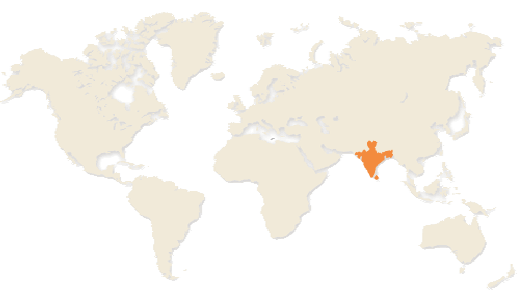 Watershed India Watershed India
Home
 About Us About Us

 About
India About
India
 About Watershed Management About Watershed Management
 Link Tool Box for Watershed Management Link Tool Box for Watershed Management
 Our Partners Our Partners
 Our
Publications Our
Publications  Our Achievements Our Achievements
 Free Tutorials Free Tutorials
 Useful
Sites Useful
Sites

 Photo
Gallery
Photo
Gallery
|
|
About Us
| Introduction
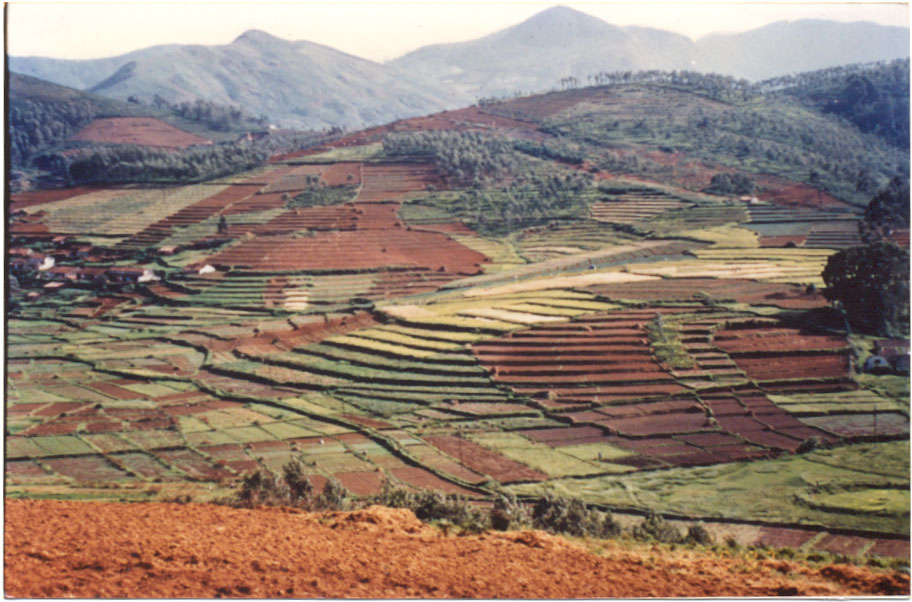 We have
always believed that man may come or go, mighty empires may fall, battles may be lost,
flourishing civilizations may disappear and mighty earthquakes may destroy us all but the
land that grows our food and the water and air that sustain us will go on forever. This is
a false belief. Conservation
of our natural resources is the need of the hour. If nature is thoughtlessly and
mercilessly exploited, the day is not far when there will be nothing left to exploit at
all.As life on e We have
always believed that man may come or go, mighty empires may fall, battles may be lost,
flourishing civilizations may disappear and mighty earthquakes may destroy us all but the
land that grows our food and the water and air that sustain us will go on forever. This is
a false belief. Conservation
of our natural resources is the need of the hour. If nature is thoughtlessly and
mercilessly exploited, the day is not far when there will be nothing left to exploit at
all.As life on e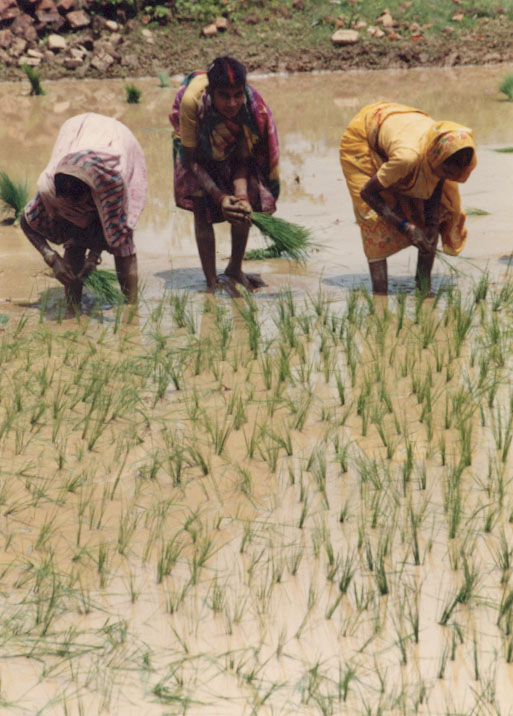 arth
depends on land, water and air for survival, utilization of these cannot stop altogether.
The focus should be on optimal exploitation and sustainable development. arth
depends on land, water and air for survival, utilization of these cannot stop altogether.
The focus should be on optimal exploitation and sustainable development.
If future generations are
to live and prosper, they will need these resources as much as we do today. It is our duty
to leave nature as we found it, if we cannot improve it. |
| The
Problem 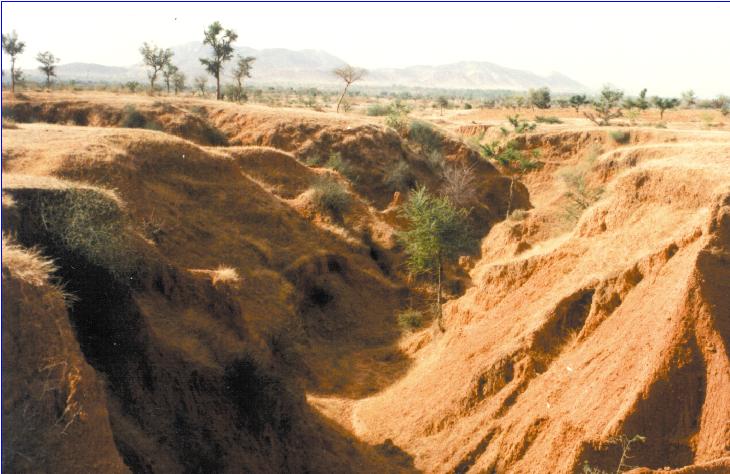 Land, the backbone of our survival is being degraded at an
alarming speed. Precious nutrient rich topsoil is washed away into the sea. Indiscriminate
felling of trees, unsuitable farming practices and too short a time for regeneration
complicate an already grave situation. Land, the backbone of our survival is being degraded at an
alarming speed. Precious nutrient rich topsoil is washed away into the sea. Indiscriminate
felling of trees, unsuitable farming practices and too short a time for regeneration
complicate an already grave situation.
Water so vital to life
comes packaged with disease causing germs and sometimes not at all. These have been
stumbling blocks to development and no less in the basic quality of life. As groundwater
recharge limps on weak legs, water tables reach record levels of low and land becomes
alkaline and saline and unproductive - the beginning of a vicious circle. |
| The
Genesis of the Project 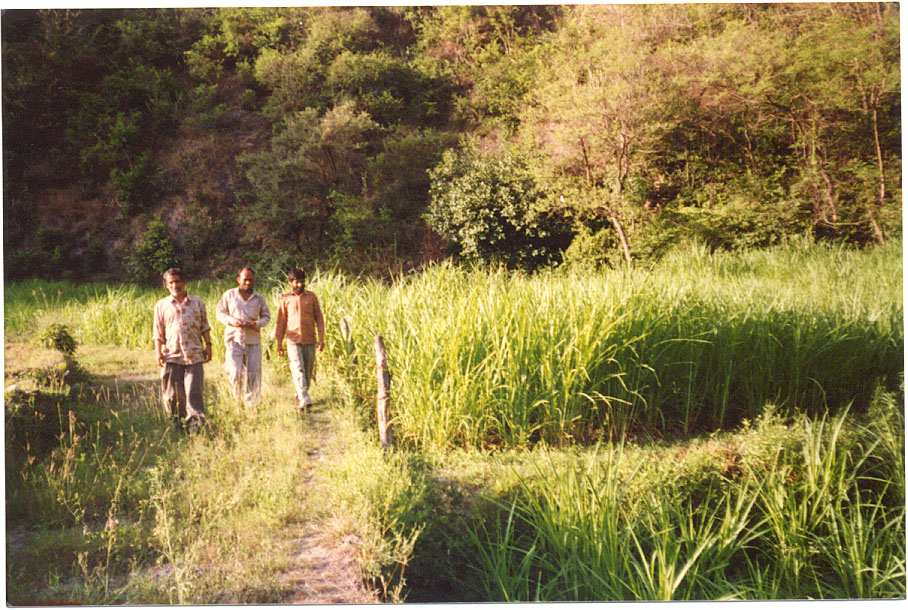 The
gravity of the situation was recognized by the Government, NGOs and concerned alike, but
their efforts often lacked continuity and direction. Generally, all activity came to a
standstill once outside inputs were withdrawn. The
gravity of the situation was recognized by the Government, NGOs and concerned alike, but
their efforts often lacked continuity and direction. Generally, all activity came to a
standstill once outside inputs were withdrawn.
Under its various
developmental schemes, the Government of India was carrying out erosion control activities
but without obtaining the desired results. This led the Ministry of Agriculture,
Government of India to seek technical assistance from the Government of Germany in
hydrological monitoring and erosion control methods. The Indo-German Bilateral Project
"Watershed Management" became a reality in 1990. While the initial focus was on
hydrological monitoring, it soon spread its fledging wings to become a full-fledged
watershed management project in 1992. |
| Organizational
Setup 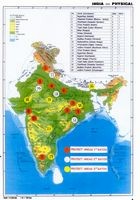 The
Indo-German Bilateral Project "Watershed Management" is a collaboration of the
Ministry of Agriculture, Government of India and the German Ministry for Economic
Cooperation and Development. The Project is implemented by RODECO Consulting, Germany, on
behalf of the German Agency for Technical Cooperation (GTZ). In each of the Representative
Watersheds (RWSs) the Project works with a State Government Department identified by the
Ministry of Agriculture and a local NGO. The Department focuses its efforts on soil and
water conservation activities while the NGO works towards strengthening community-based
organizations and improving livelihood of the people. The
Indo-German Bilateral Project "Watershed Management" is a collaboration of the
Ministry of Agriculture, Government of India and the German Ministry for Economic
Cooperation and Development. The Project is implemented by RODECO Consulting, Germany, on
behalf of the German Agency for Technical Cooperation (GTZ). In each of the Representative
Watersheds (RWSs) the Project works with a State Government Department identified by the
Ministry of Agriculture and a local NGO. The Department focuses its efforts on soil and
water conservation activities while the NGO works towards strengthening community-based
organizations and improving livelihood of the people.
|
| Activities
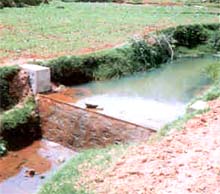 These focus on: These focus on:
1. Watershed management - a comprehensive package for natural resources management and the
improvement of livelihood conditions for the people. Soil and water conservation is
carried out through the construction of physical structures, promoting plantations and
forestry and encouraging right farming practices. Poverty alleviation is effected through
various income generation schemes and formation of self-help groups. The formation of
community-based organizations ensures involvement and participation of the local people in
project activities. Exposure visits and communication packages are aimed at raising
awareness on natural resources management issues.
2. Hydrological monitoring
- through a network of Silt Monitoring Stations (SMSs) in treated and control watersheds
remains another thrust area. The monitoring of impact of different activities in the
watersheds has gained importance in recent years.
3. Training for senior and
junior level officers of the State Government Departments in soil and water conservation
and hydrological monitoring is undertaken. A number of workshops on different aspects of
watershed management have also been organized by the Project. |
Target
Groups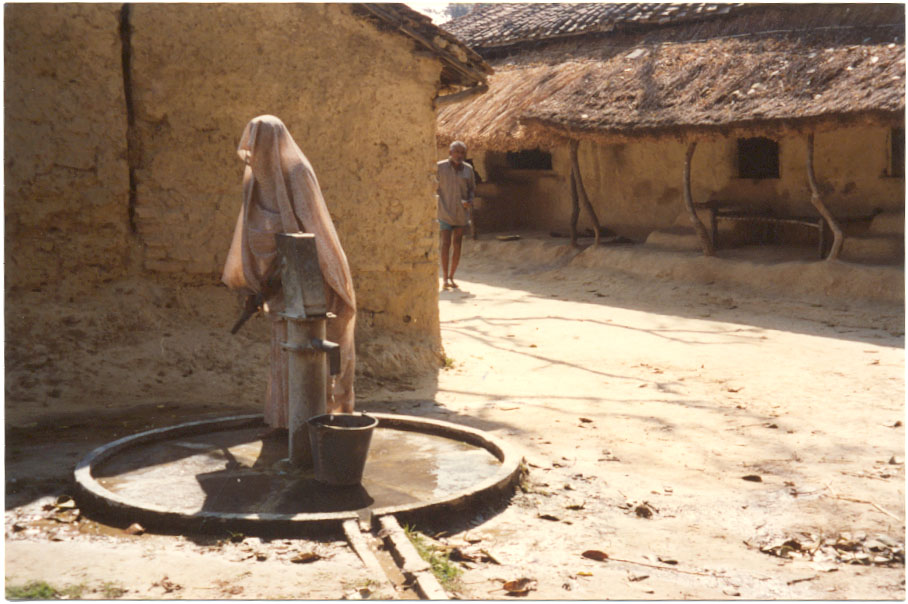 The
poor and the rural landless are targeted for the poverty alleviation initiatives as they
are likely to put the greatest pressure on the natural resources. Improving the working
conditions of women, promoting greater economic independence among them through income
generation activities and thrift and credit societies and enabling their participation in
the watershed committees, are major concerns. |
| Outlook
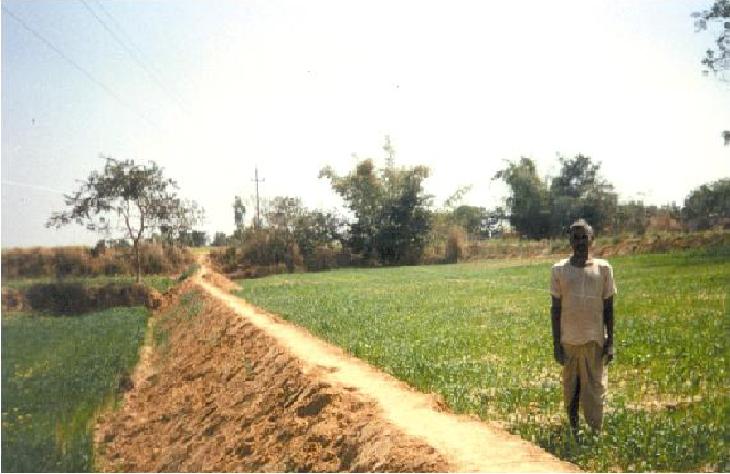
As natural resource
management and improvement are key concerns, successful implementation of project
activities will result in an invigorated natural environment and a better life for the
people, with maximum benefit to the poorest of the poor.
In the Representative
Watershed Programme, people are involved right from the stage of planning to ensure their
participation and involvement. In each watershed, there is an emphasis on the formation of
community-based organizations that will takeover and maintain all activities after project
withdrawal. This ensures sustainability. Furthermore, the Project develops procedures,
protocols and guiding principles for the government departments from lessons learned
during the course of the project for nationwide replica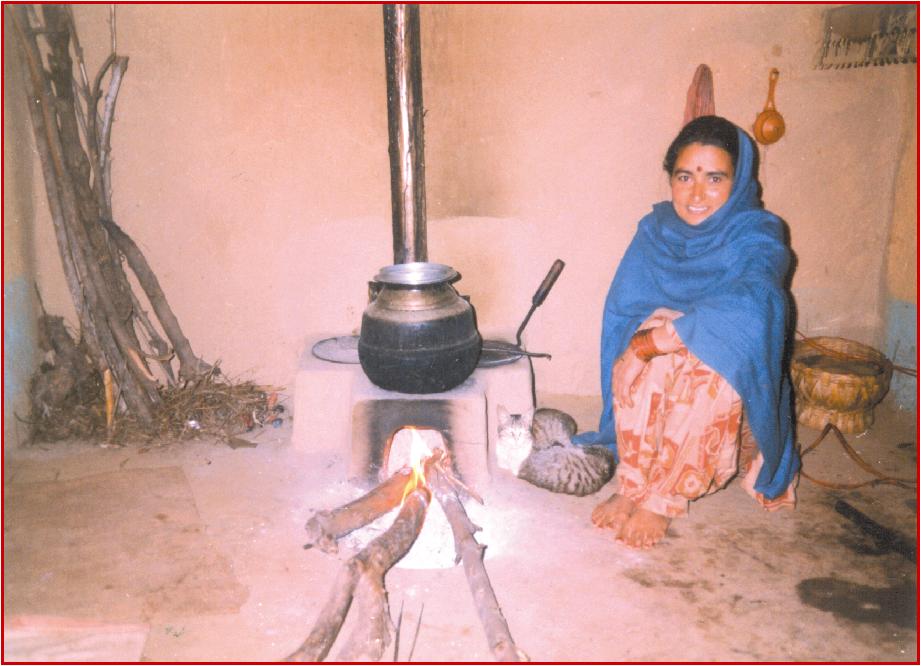 tion at a later date. tion at a later date.

|
|
| Watershed India Homepage | About Us | About India | About Watershed Management | Link Tool Box for Watershed Management | Our Partners | Our Publications | Our Achievements
| Free Tutorials | Useful Sites | Photo Gallery |

|
|
